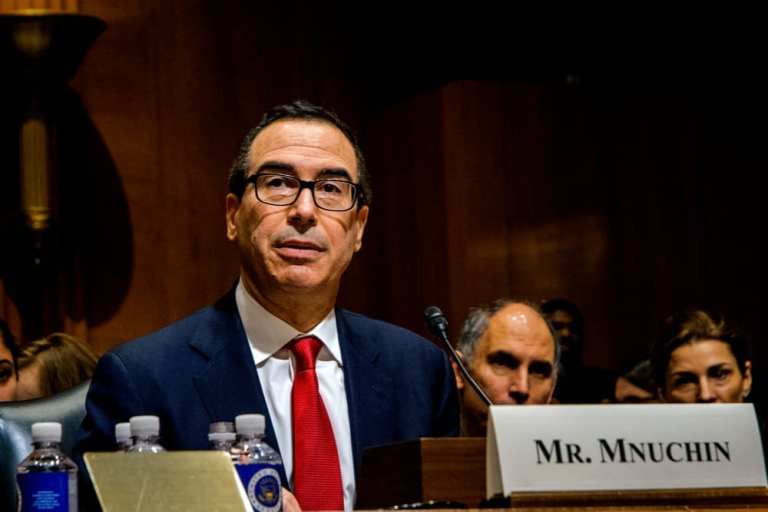Senators Push For Inspector General Oversight On $500B Company Bailout Fund

Democratic Senators are pushing to ensure that Treasury Secretary Steve Mnuchin does proper oversight work on the $500 billion stimulus passed last week by the government to aid companies in the coronavirus pandemic.
In particular, the senators want to avoid a repeat of the 2008 bailout for banks, which was criticized after the fact when bankers took the money to use for themselves rather than helping the overall economy.
Democrats worried an earlier version of the bill gave Mnuchin too much say on how companies spend the money. An agreement was reached before the passage of the final bill to add an inspector general, called the Special Inspector General for Pandemic Recovery (SIGPR), to ensure transparency in the process.
However, President Donald Trump released a statement along with the signed bill, in which he announced that he believed any attempt to block information to Congress by the inspector general would need his permission first.
So Senate Minority Leader Chuck Schumer, Sen. Sherrod Brown of Ohio and Sen. Ron Wyden of Oregon sent a letter to Mnuchin saying that, given the specific efforts of Congress to enact oversight to the bill, Mnuchin should do what he agreed to and let them know immediately about any issues with oversight, rather than waiting on Trump.
Activists worry that a lack of proper oversight opens the door for the $500 billion corporation aid portion of the overall $2 trillion stimulus package to be used for corrupt means. Administration officials, after all, said that the money could easily be leveraged into $4 trillion in lending power. Carter Dougherty, a communications director at advocacy group Americans for Financial Reform, called it a “challenge” to make sure the money benefits the American people at large rather than just corporations.
Mnuchin told “Face the Nation” last week that the $1,200 checks for Americans to help them through the crisis would hit around three weeks from now, or in mid-April. He said they would be direct-deposited utilizing bank account information on-file from tax returns from the previous few years.